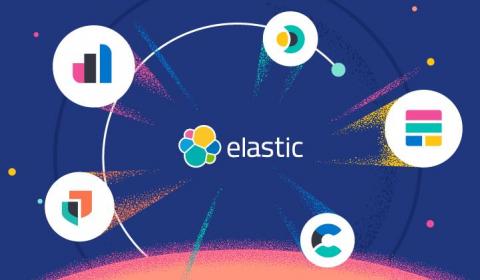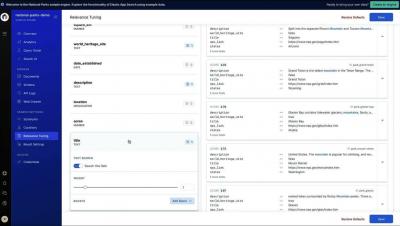Operations | Monitoring | ITSM | DevOps | Cloud
Search
Announcing Aiven for OpenSearch
Elastic 7.15: Create powerful, personalized search experiences in seconds
We are pleased to announce the general availability of Elastic 7.15, a release that brings a broad set of new capabilities to the Elastic Search Platform (including Elasticsearch and Kibana) and its three built-in solutions — Elastic Enterprise Search, Elastic Observability, and Elastic Security.
How to build a search interface for Your Apps and Websites - 7.14
OpenSearch Clusters: Get Started with Install and Configuration
Our first tutorial gave a general introduction to OpenSearch installation and configuration. We recently also published a comparative introduction for OpenSearch queries (and how they parallel or contrast with Elasticsearch). Now, we’ll continue that series with an intro to OpenSearch clusters. This is a very simple tutorial with straight-forward examples, but we will try to cover some detail and common advanced settings.
How to tune search relevance in Elastic App Search
OpenSearch Queries: Query DSL and Beyond
OpenSearch has evolved rapidly since its fork from the source code of the last truly open source version of Elasticsearch. So far, the community’s work has focused on removing proprietary code from Elastic, including a number of things that were never purely open source themselves. These include some aspects of the querying languages and capabilities of Elasticsearch.
Elasticsearch Audit Logs and Analysis
Security is a top-of-mind topic for software companies, especially those that have experienced security breaches. Companies must secure data to avoid nefarious attacks and meet standards such as HIPAA and GDPR. Audit logs record the actions of all agents against your Elasticsearch resources. Companies can use audit logs to track activity throughout their platform to ensure usage is valid and log when events are blocked.
Elasticsearch Release: Roundup of Changes in 7.13.3
Elastic made their latest minor Elasticsearch release on May 25, 2021. Elasticsearch Version 7.13 contains the rollout of several features that were only in preview in earlier versions. There are also enhancements to existing features, critical bug fixes, and some breaking changes of note. Three more patches have been released on the minor version, and more are expected before releasing the next minor version.
Save 10% disk space on your logging datasets with match_only_text
Elasticsearch 7.14 introduces match_only_text, a new field type that can be used as a drop-in replacement for the text field type in logging use cases with a much lower disk footprint, leading to lower costs. Elasticsearch is attractive for log analysis thanks to its ability to index log messages. Want to count how many log messages contain access denied in the last 24 hours?











